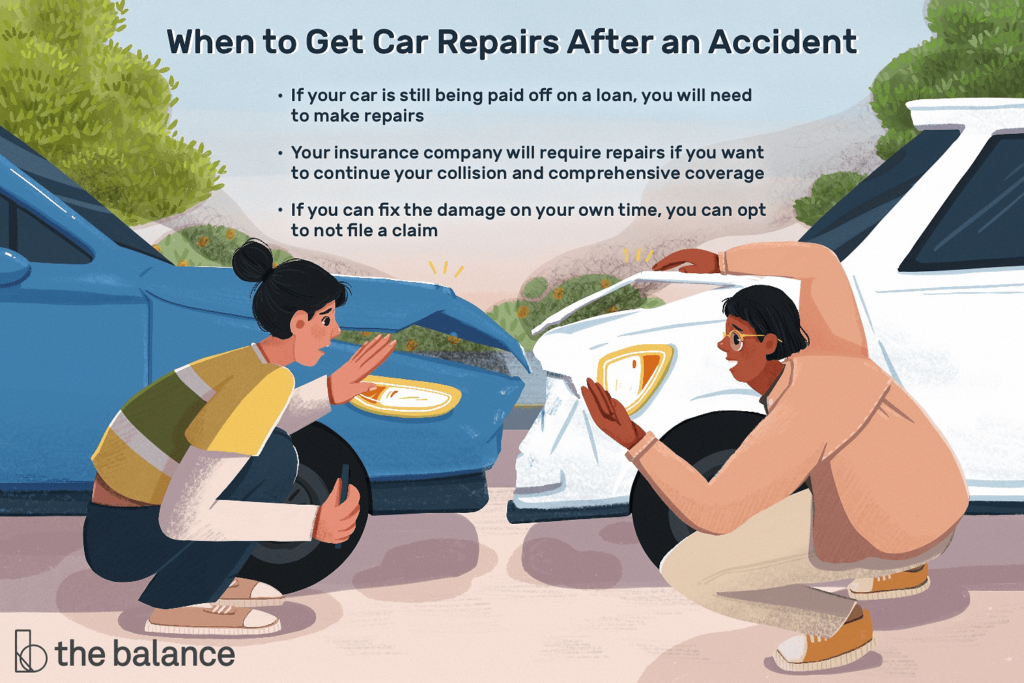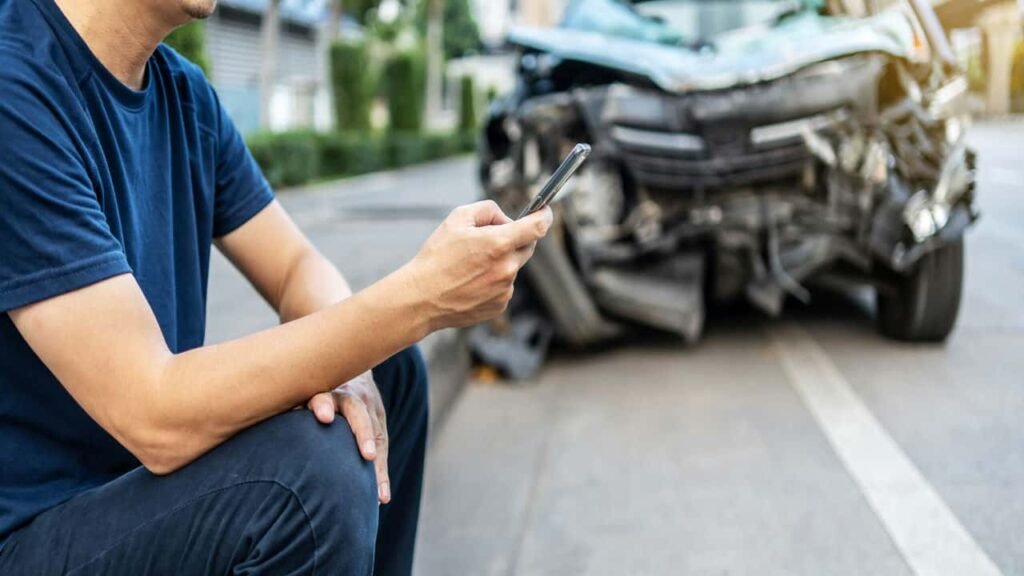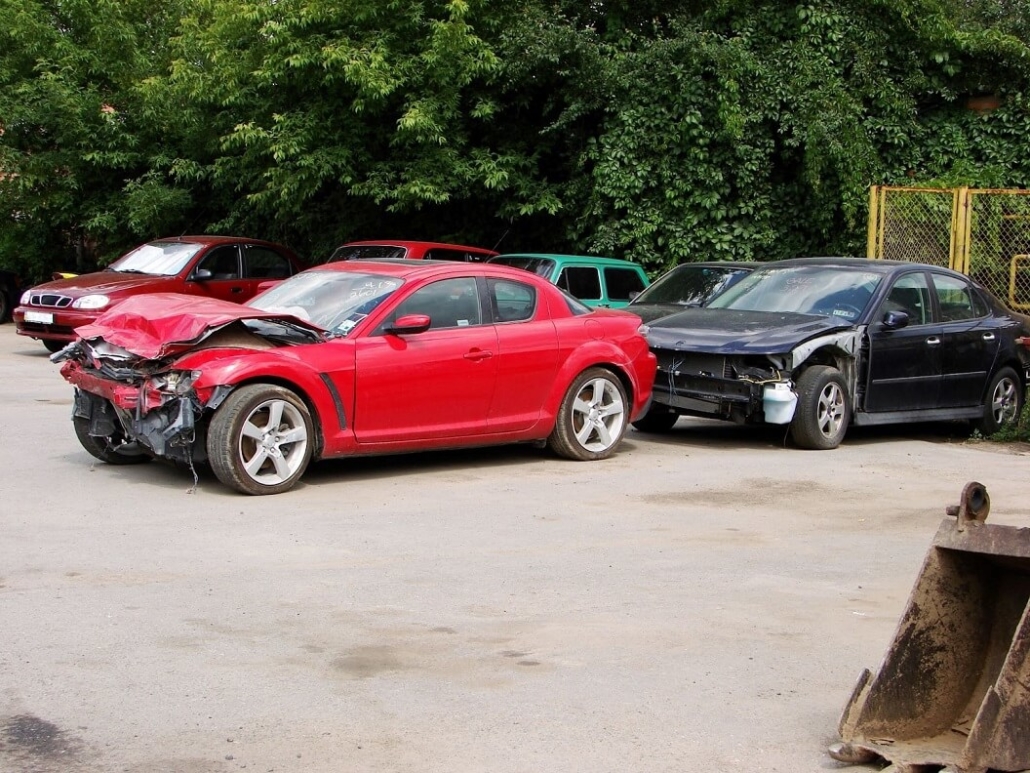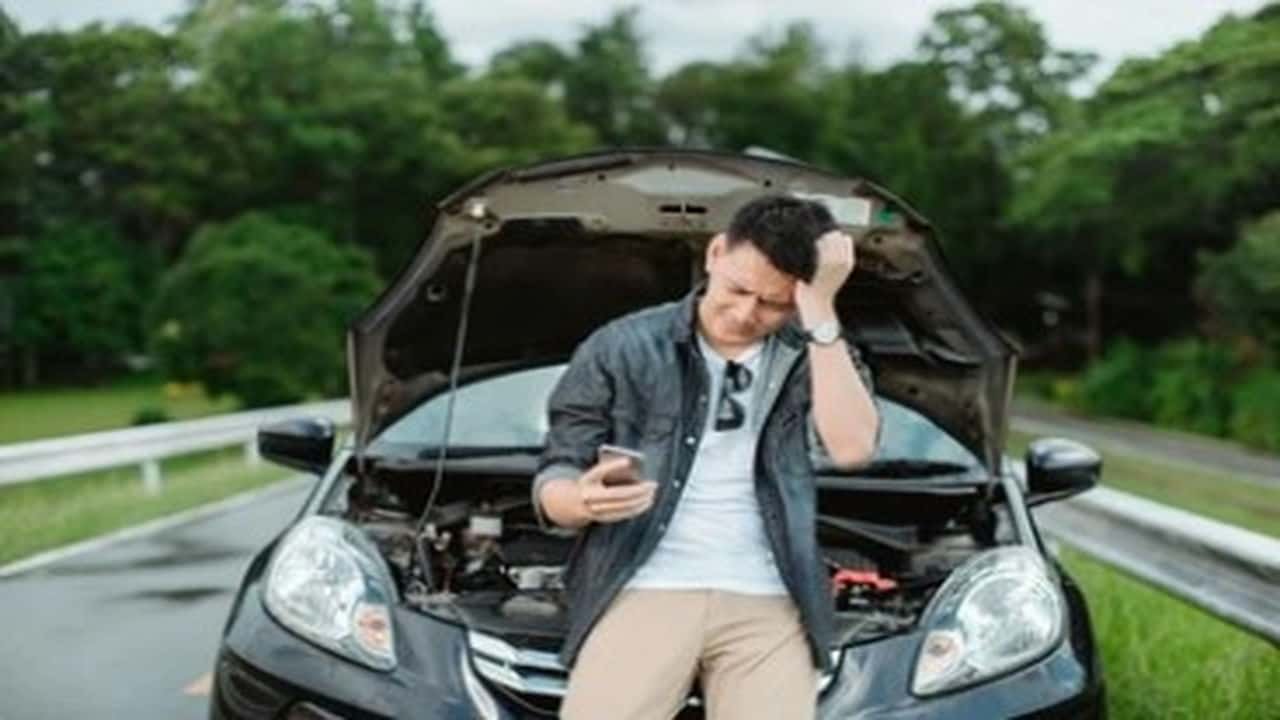What happens if you crash a financed car with insurance? Many car owners may ask it. This is especially true if they recently bought a car through financing.
If you have a car crash and you are still making payments on your insured car, the insurance company will only reimburse you for the actual worth of the car. They don’t have to pay off the rest of the loan. It’s up to you to pay the difference between what the car is worth and what you still owe on the loan.
This means if the ACV falls short of the loan amount, you will be responsible for the remaining balance. So, what happens if you find yourself in this situation? Let’s delve deeper and explore the consequences of crashing a financed car with insurance.
What Is The Importance Of Car Insurance For Financed Vehicles?

Credit: www.thebalancemoney.com
When you finance a car, whether through a bank loan or dealership financing, the lender usually requires comprehensive collision insurance. This requirement protects both you and the lender in case of an accident.
Car insurance covers damage to your vehicle, medical expenses, and liability for injuries or property damage from the accident. Having car insurance for your financed vehicle is not only a legal obligation but also a smart financial decision.
Without insurance, you would be personally responsible for paying for damages, medical bills, or legal fees from an accident. If you crash a financed car without insurance, the lender could declare your loan in default. They might repossess the vehicle.
Credit: pl-law.com
What Happens If You Crash A Financed Car With Insurance?
When you’re involved in a car accident, and your vehicle is financed, it can create some extra complications. It’s important to understand what happens if you crash a financed car with insurance.
Insurance Settlement For Financed Cars
If you crash a financed car with insurance, the insurance settlement check will typically go to your lender first. It will pay off the remaining balance of your car loan. Once the loan is paid off, you will receive any leftover money, if there is any.
However, it’s crucial to note that insurance companies are only required to pay the actual cash value (ACV) of the vehicle. The ACV may be less than what you owe on the loan.
If you owe more on your car loan than the car’s ACV, you’ll have to pay the difference. This can leave you in a financially challenging situation. You will still owe money on a car that is no longer drivable.
Paying Off The Loan Balance
If the insurance settlement doesn’t cover the full loan balance, you have a few options to consider. One option is to pay off the remaining balance out of pocket. This can be a substantial financial burden, especially if you don’t have readily available funds.
Another option is to roll the remaining loan balance into a new car loan. This may let you keep making monthly payments. But, it can also lead to negative equity in the new loan and potentially higher interest rates.
It’s important to evaluate this option carefully. Determine if it’s the best course of action for your financial situation.
Options For Damaged Financed Cars
If your financed car is damaged but not deemed a total loss by the insurance company, you have a few options. You can choose to have the car repaired and continue making payments on it. However, you’ll need to consider the cost of repairs and whether it’s worth investing in a damaged vehicle.
Another option is to sell the car as is. However, you’ll still be responsible for paying off the remaining balance on the loan, even if the car is no longer in your possession. It’s important to carefully assess the value of the car and the potential costs involved before deciding on this option.
Ultimately, if you crash a financed car with insurance, it’s essential to understand the implications and potential financial consequences. The insurance settlement may not cover the full loan balance. You may be responsible for the remaining debt.
Consider your options carefully. Consult a financial advisor if needed to make an informed decision.
The Role Of Insurance Coverage In A Financed Car Accident

Insurance coverage plays a vital role. It protects your financed car in the event of an accident. The coverage provided by your policy will determine how much your insurance company will help you repair or replace your vehicle.
Comprehensive and collision insurance are the two main types of coverage for financed car accidents.
Comprehensive insurance covers damages to your vehicle from non-collision incidents. Examples include theft, vandalism, or natural disasters.
Collision insurance covers damages to your vehicle resulting from a collision with another vehicle or an object. It’s different from liability insurance. These two types of coverage, combined with liability coverage, form the core protection for your financed car.
However, it is essential to review your insurance coverage regularly and make sure it aligns with your needs and the value of your financed vehicle.
In some cases, lenders may require specific coverage limits or additional coverage. They may ask for gap insurance to protect their financial interest in the car.
The Claims Process After A Financed Car Accident
Once you have reported the accident to your insurance company, they will guide you through the claims process.
The process typically involves:
- To provide the necessary documentation, you must gather and submit relevant documents. If you suffered an injury, please include the police report, photographs of the accident, and any medical bills or records.
- An adjuster from the insurance company will evaluate the damages to your financed car. They will determine the cost of repairs or replacement.
- If the cost of repairs is within the policy limits and feasible, the insurance company will cover the expenses. If the cost of repairs exceeds the value of the vehicle, the insurance company will provide the actual cash value of the car.
- You may have to pay deductibles or out-of-pocket expenses according to your policy. The insurance company will assess the damages and arrange for repairs or replacement. They will provide the necessary funds or coordinate with repair shops or car dealerships.
Potential Financial Implications Of Crashing A Financed Car With Insurance
Having insurance coverage can mitigate the financial impact of a financed car accident. But you still need to consider potential financial implications. The most significant financial implication is the potential increase in insurance premiums.
When you file a claim for an accident, especially if you are at fault, your insurance company may increase your premiums at the time of renewal.
If the cost to fix your financed car exceeds its determined worth by the insurance company, you may have to pay the difference. They call this a shortfall. You still have to pay off the rest of your loan, even if you can’t drive or repair your car.
To avoid this, you need to know the limits and terms of your insurance policy. You might also consider getting extra coverage. For example, gap insurance pays the difference between your car’s value and your loan balance.
Steps to take after a financed car accident to minimize the consequences
If you have a car accident and finance it, you need to take specific steps to reduce the consequences and protect your finances.
Here are some steps you should consider:
- Ensure safety: Make sure everyone involved in the accident is safe. If necessary, contact the police or medical services.
- Document the accident: Photograph the accident scene. Take pictures of the damages to your vehicle and any other vehicles involved. This documentation will be helpful during the claims process.
- Report the accident to your insurance company: Contact your insurance company right away. Report the accident and start the claims process.
- Follow the instructions of your insurance company: Work together with your insurance company. Follow their instructions for documentation, repairs, and any other needs.
- Review your insurance policy: Review your insurance policy. Understand the coverage limits, deductibles, and any extra coverage you have. Take the time to do this.
- Consider legal assistance: If the accident causes major damages or injuries, you should talk to a car accident lawyer. They can help you protect your rights and handle any legal complications.
How To Prevent Accidents And Protect Your Financed Car
To protect your financed car and avoid crash consequences, the most effective way is to prevent accidents.
Here are some tips to help you minimize the risk of accidents:
- Follow traffic laws: Follow the speed limits, traffic signs, and signals. Do not drive recklessly while distracted. Do not drive recklessly while under the influence of alcohol or drugs.
- Maintain your vehicle: To keep your vehicle running well, make sure to schedule regular inspections and servicing. Address any necessary repairs promptly. Cars that are well-maintained are less likely to have mechanical failures. These failures can cause accidents.
- Practice defensive driving: Pay attention to what’s around you. Think about possible dangers ahead. Keep a safe distance from other vehicles. Defensive driving techniques can help you react quickly and avoid accidents.
- Avoid distractions: Do not use your phone or do other things that distract you while driving. Keep your focus on the road to minimize the risk of accidents.
- Consider investing: Consider investing in safety features for your financed car. These include anti-lock braking systems (ABS), airbags, and electronic stability control (ESC). These features can enhance your safety on the road.
The Terms And Conditions Of Your Insurance Policy
To fully understand the consequences of crashing a financed car with insurance, it is crucial to review your insurance policy’s terms and conditions thoroughly. Pay close attention to coverage limits, deductibles, and exclusions.
Also, consider any additional coverage you may have. If you have any doubts or questions, do not hesitate to reach out to your insurance company or a professional insurance advisor.
Clarify the terms and ensure you have adequate coverage for your financed car.

Credit: www.foryourrights.com
Frequently Asked Questions On What Happens If You Crash A Financed Car With Insurance?
Will My Insurance Pay Off My Car Loan?
No, your insurance company is not required to pay off your car loan. They will only pay the actual cash value (ACV) of the car. If you owe more on your loan than the ACV, you will be responsible for paying the difference.
The insurance settlement check will go to your lender first to pay off the loan balance.
What Happens When Insurance Writes Off A Financed Car?
When insurance writes off a financed car, the insurance settlement check will go to the lender. The lender will use the check to pay off the remaining balance of the car loan. If there is any money left over, you will receive it. However, insurance is only required to pay the actual cash value (ACV) of the car. This amount may be less than what you owe on the loan.
What Happens If I Crash My New Car?
If you crash your new car, your auto insurance company will compensate you for the car’s current value. However, this amount may be less than what you originally paid for the car. It is important to note that every car insurance policy has a most limit on how much it will pay.
What Happens If My Engine Blows On A Financed Car?
In the unfortunate event that your financed car engine blows, you have a few options. You can choose to repair the car and continue making payments, but this can be costly. Alternatively, you can sell the car as-is. But you’ll still be responsible for paying off the remaining loan balance.
It’s important to consider the value of the car and the cost of repairs before making a decision.
Sum Up
If you find yourself in the unfortunate situation of crashing a car that you’re still paying for and have insurance, the aftermath can be quite complex. While your insurance company will cover the damages, they are not obligated to pay off your car loan in full.
You may still be responsible for the difference between the actual cash value (ACV) of your car and the amount owed on your loan. It’s important to understand the terms of your insurance policy. Consider your financial obligations before making any decisions.

2 thoughts on “What Happens If You Crash A Financed Car With Insurance? Find Out Now”